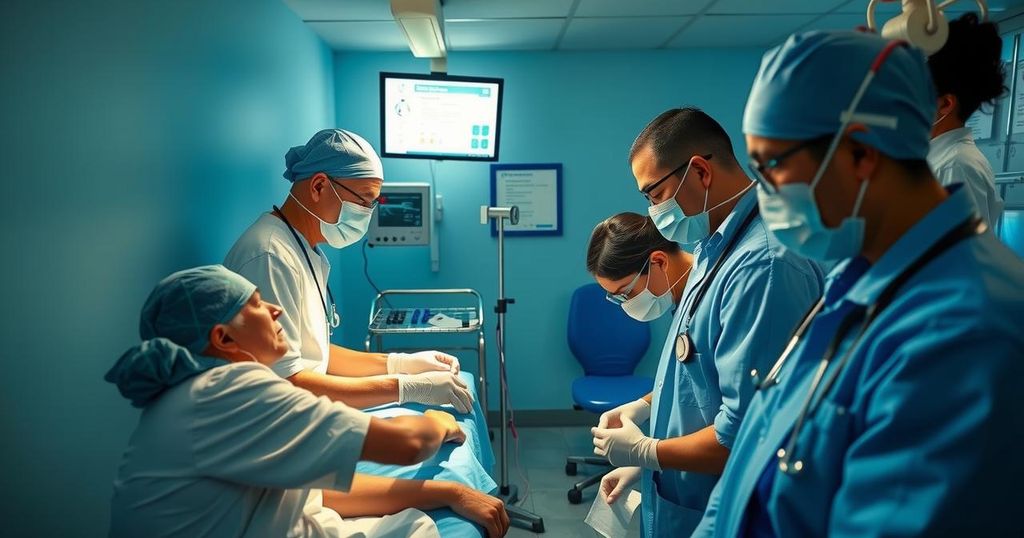The mpox outbreak in the eastern Democratic Republic of Congo is showing signs of stabilizing, with a reduction in new cases following the rollout of vaccines. The WHO notes, however, that it is too soon to fully assess the impact of these vaccinations. While the situation at healthcare facilities has improved, the disease continues to affect many, particularly children who remain unvaccinated.
Healthcare professionals at the forefront of the mpox outbreak in the eastern Democratic Republic of Congo (DR Congo) reported a significant decline in new cases following the initial vaccination efforts that commenced last month. The World Health Organization (WHO) has confirmed that while new infections appear to be stabilizing, it remains prematurely speculative to ascertain the full impact of vaccination strategies. With mpox, previously known as monkeypox, having claimed nearly 900 lives this year alone, the situation continues to demand cautious attention.
A visit to the Lwiro clinic, approximately one hour from Bukavu, revealed encouraging changes since a previous visit two months ago, which was marked by overcrowding and overwhelming patient demands. Nurse Emmanuel Fikiri, actively involved in managing the crisis, expressed optimism, noting that the healthcare facility now accommodates no more than 60 patients, a stark contrast to the crisis-level influx seen earlier. This change has been attributed to improved vaccination rates and support from various global partners.
As of October, DR Congo commenced its mpox vaccination program after receiving 265,000 doses. To date, over 50,000 individuals have been vaccinated, primarily focusing on the communities most susceptible to infection. Nonetheless, experts caution that the disease disproportionately affects children, and vaccination for this demographic is yet to be fully addressed, although the WHO recently authorized a vaccine specifically for children. Healthcare professionals continue to monitor the present situation, acknowledging the need for extensive surveillance despite the observed slowdown in new cases.
Mpox, formerly recognized as monkeypox, is a highly infectious disease that has notably impacted the Democratic Republic of Congo, with significant mortality rates reported. As health authorities strive to contain the outbreak, they have initiated vaccination campaigns in the region, focusing on areas with higher infection rates. The engagement of international health organizations, particularly the WHO, plays a crucial role in managing the ongoing health crisis and monitoring the effectiveness of vaccination programs across the continent. The presence of mpox in various African nations underscores the need for continued vigilance and public health interventions to curtail the spread of the disease, especially among vulnerable populations.
In conclusion, while there are positive indications of a decline in mpox cases in DR Congo following vaccination efforts, the broader public health situation remains critical. Health officials and experts advocate for ongoing surveillance and vaccination, particularly among children, to mitigate future outbreaks. The WHO and the Africa CDC emphasize the necessity of maintaining a robust response to prevent further escalation of the disease, underlining the importance of international collaboration in addressing health emergencies.
Original Source: www.bbc.com







